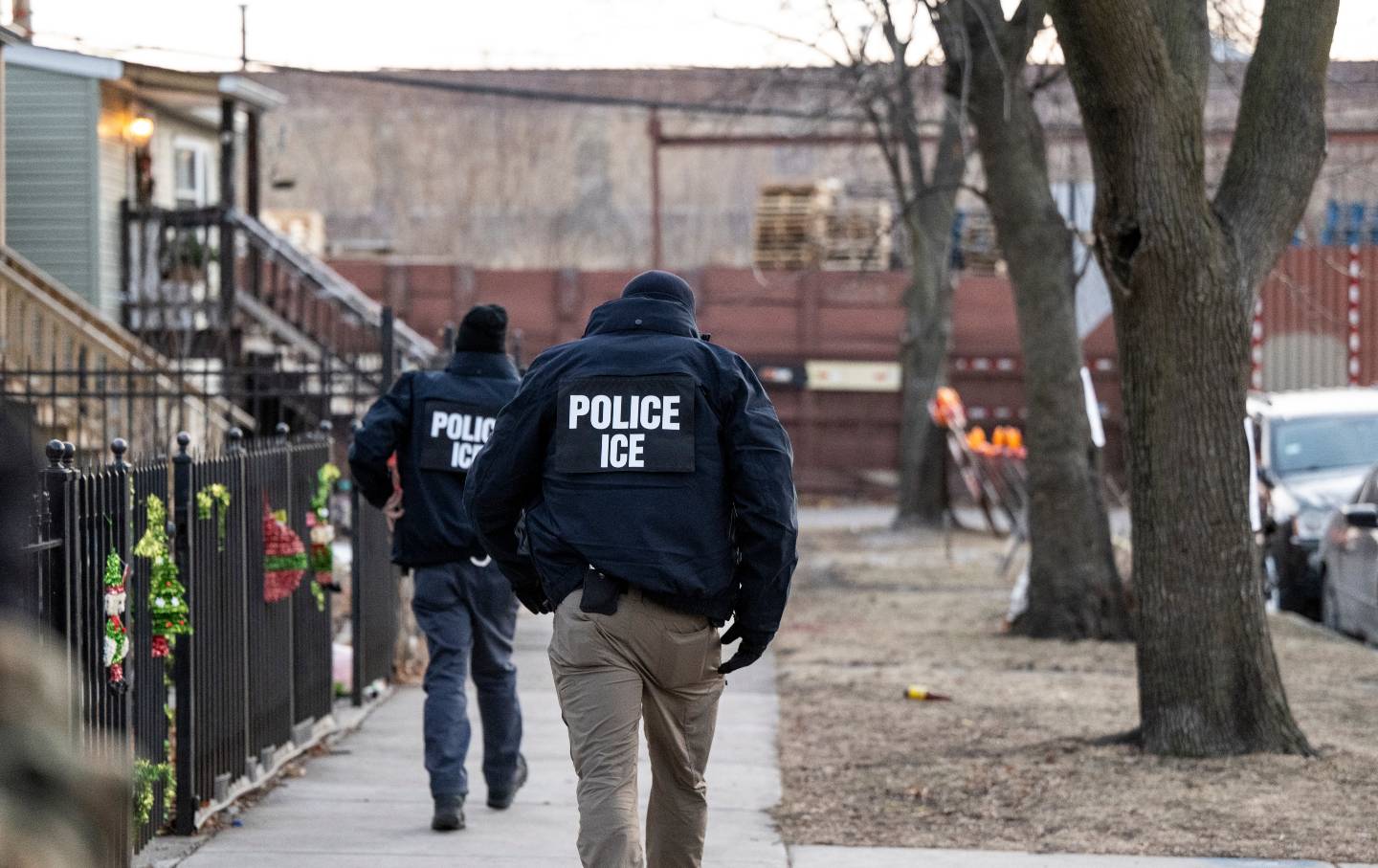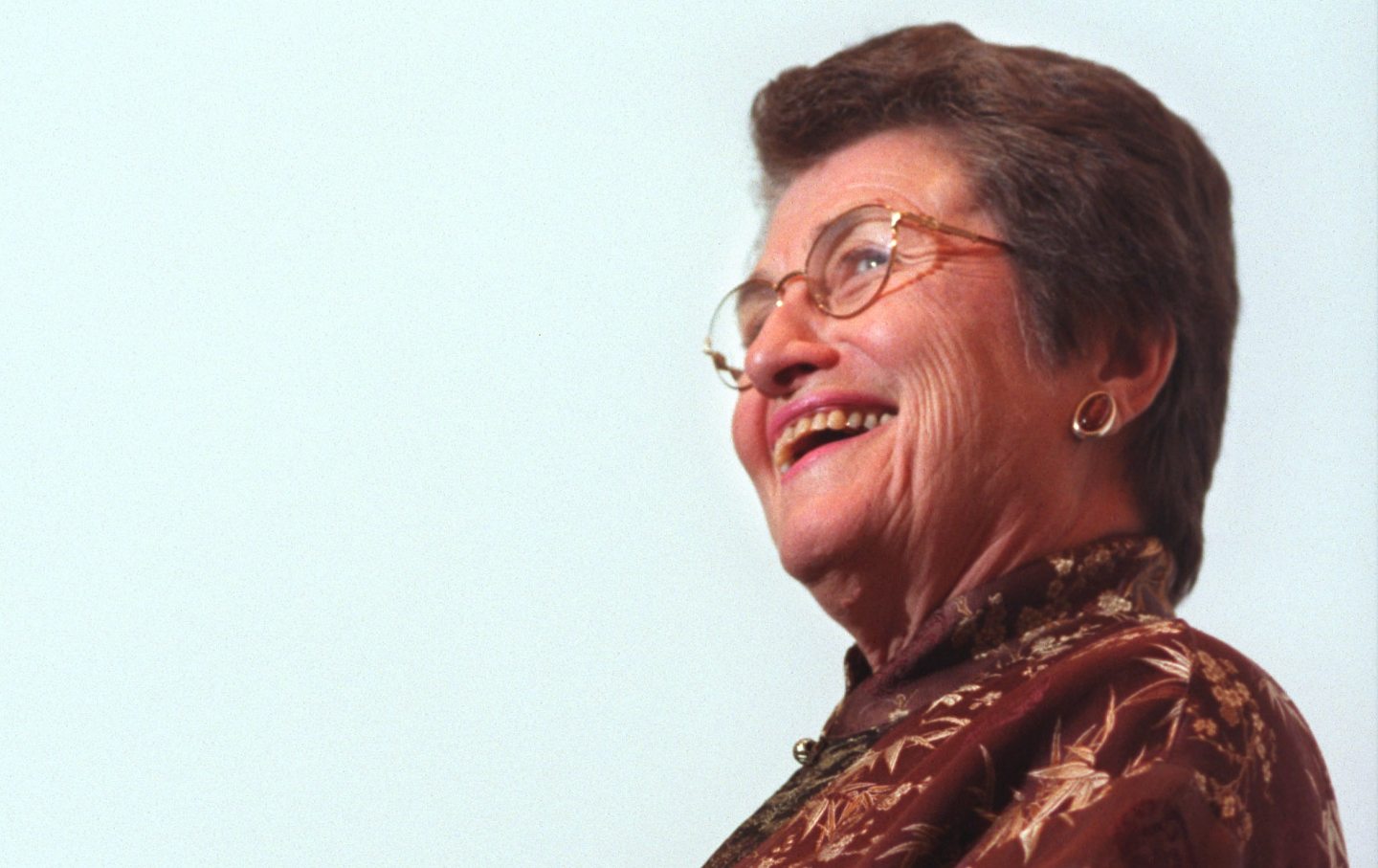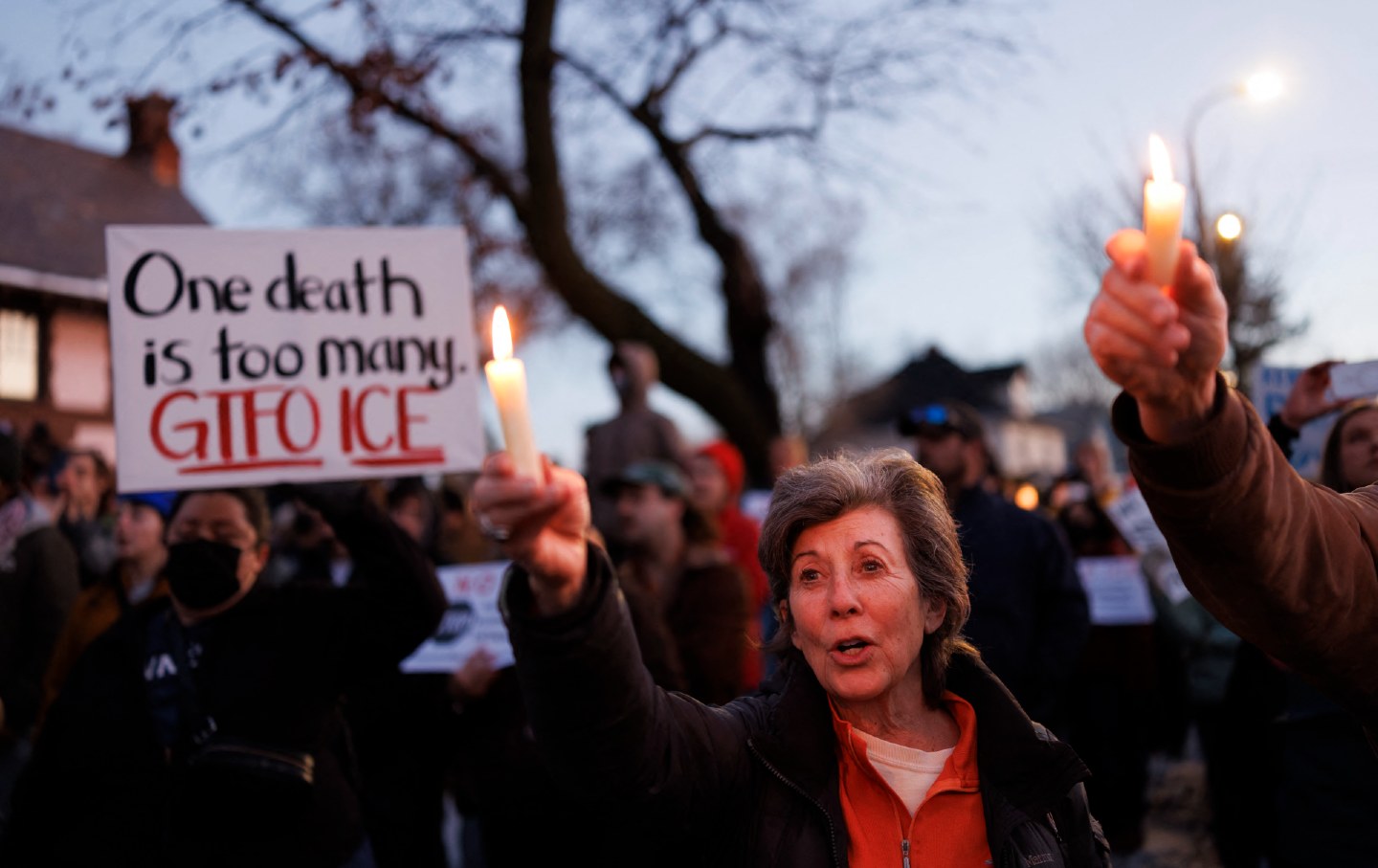Palestinians Stand Up to Israel Through Soccer
The American Friends Service Committee staged a youth soccer tournament in Rafah, showcasing the joy that the sport can offer.
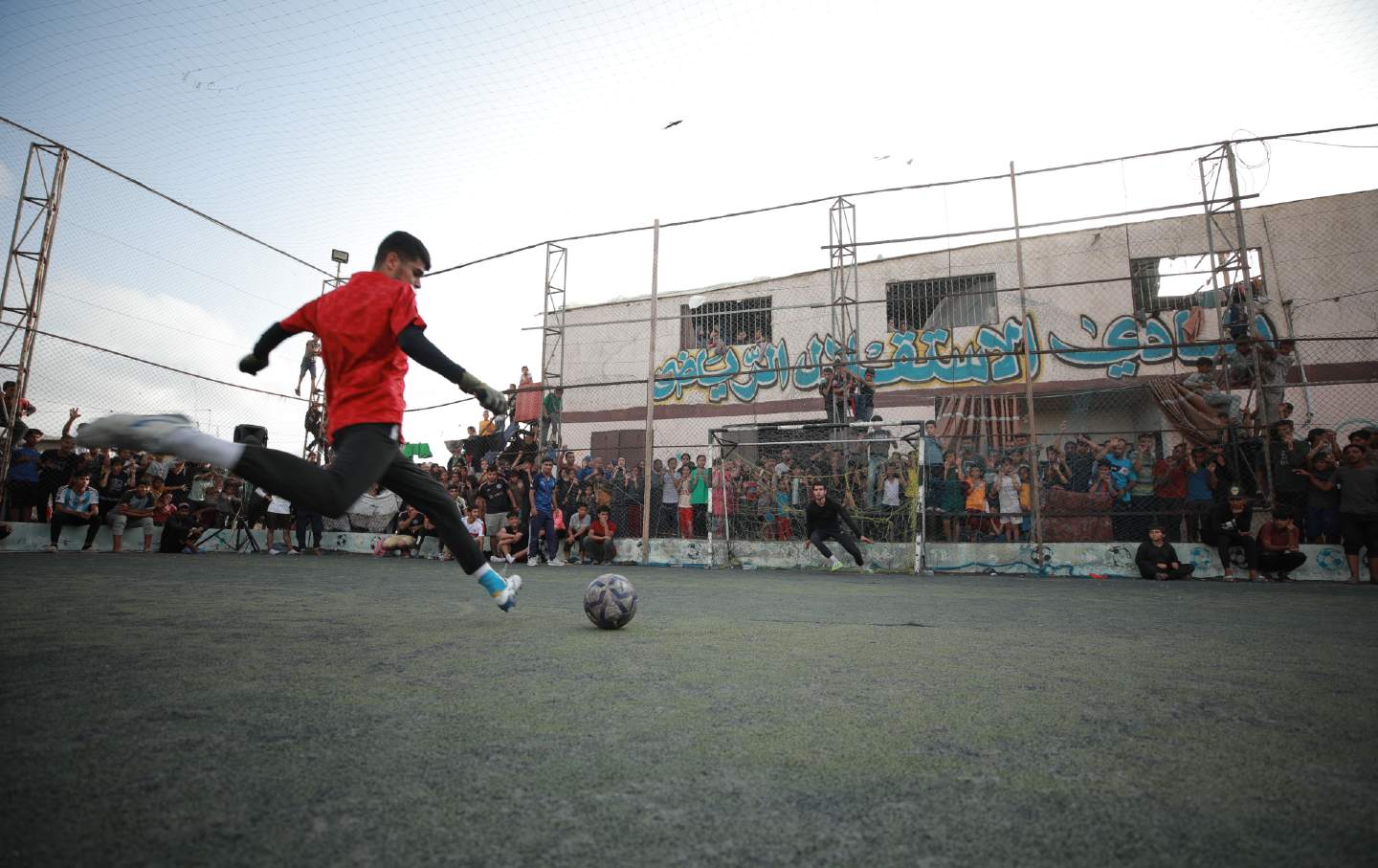
A Palestinian soccer player takes a shot on goal during a youth tournament hosted by the American Friends Service Committee in Rafah on April 28.
(Motasem Mortaja / American Friends Service Committee)Soccer is the world’s most popular sport, making it perhaps the closest thing we have to a cultural Esperanto—a common language that billions share. Amid the horrors of 2024, soccer has also become something else: a tool in the effort to stop Israel’s total war on the people of Gaza. If soccer is the great uniter, then countries that slaughter and starve civilians have no place on the pitch. This athletic activism is right now coming from two directions: There are nations trying to penalize Israel through the world governing soccer body, FIFA. Then there is the American Friends Service Committee, an organization that has been practicing mutual aid from inside Gaza since 1948. This past week, the AFSC staged a youth and teen soccer tournament in Rafah—with solidarity games in cities throughout the United States—to showcase the joy and humanity that the sport can offer. The organization’s tournament should remind the world that these young people deserve to live and play—and not become casualties of Israel’s war.
At its May 17 governing body meeting in Thailand, FIFA will debate whether to punish Israel. The Palestinian Football Association has spearheaded this effort to confront the Israeli state at the FIFA congress. “All the football infrastructure in Gaza has been either destroyed, or seriously damaged, including the historic stadium of Al-Yarmuk,” the Palestine FA wrote in its proposal to debate sanctions.
While a smattering of countries have pledged to support this effort, any kind of a penalty has little chance of passing. This is because the 55-member United European Football Association will undoubtedly block such a measure. (Israel absurdly plays in the UEFA league for reasons that would require its own article.) It also won’t pass because craven FIFA President Gianni Infantino sees himself as representing many identities, but Palestinian is assuredly not one of them.
Yet FIFA’s even having the debate is a step toward accountability for Israel and a reminder to the world of FIFA’s hypocrisy. FIFA cannot claim that it is just about sports, since it has long established itself as a political player. After the invasion of Ukraine, Russia was sanctioned faster than a Ronaldo penalty kick. This is the Palestinian Football Association asking “What about us?” not only to FIFA but to the world.
In addition to this push for accountability in the corrupt world of FIFA, the American Friends Service Committee on April 28 held a youth soccer tournament in Rafah. The AFSC is expanding the incredible work they do on the ground, having provided aid to more than 541,000 people in Gaza since October. A soccer tournament serves a similar purpose. It is an effort to bring normalcy and joy to lives that have been violently disrupted. “The young people of Gaza have experienced so much hardship and trauma over the last six months,” said Firas Ramlawi, manager for AFSC’s Gaza office and one of the tournament organizers. “They have lost parents, siblings, and loved ones. They have been displaced from their homes and their schools and community spaces have been bombed. It is so important that they experience moments of joy and resiliency in the midst of all this pain.”
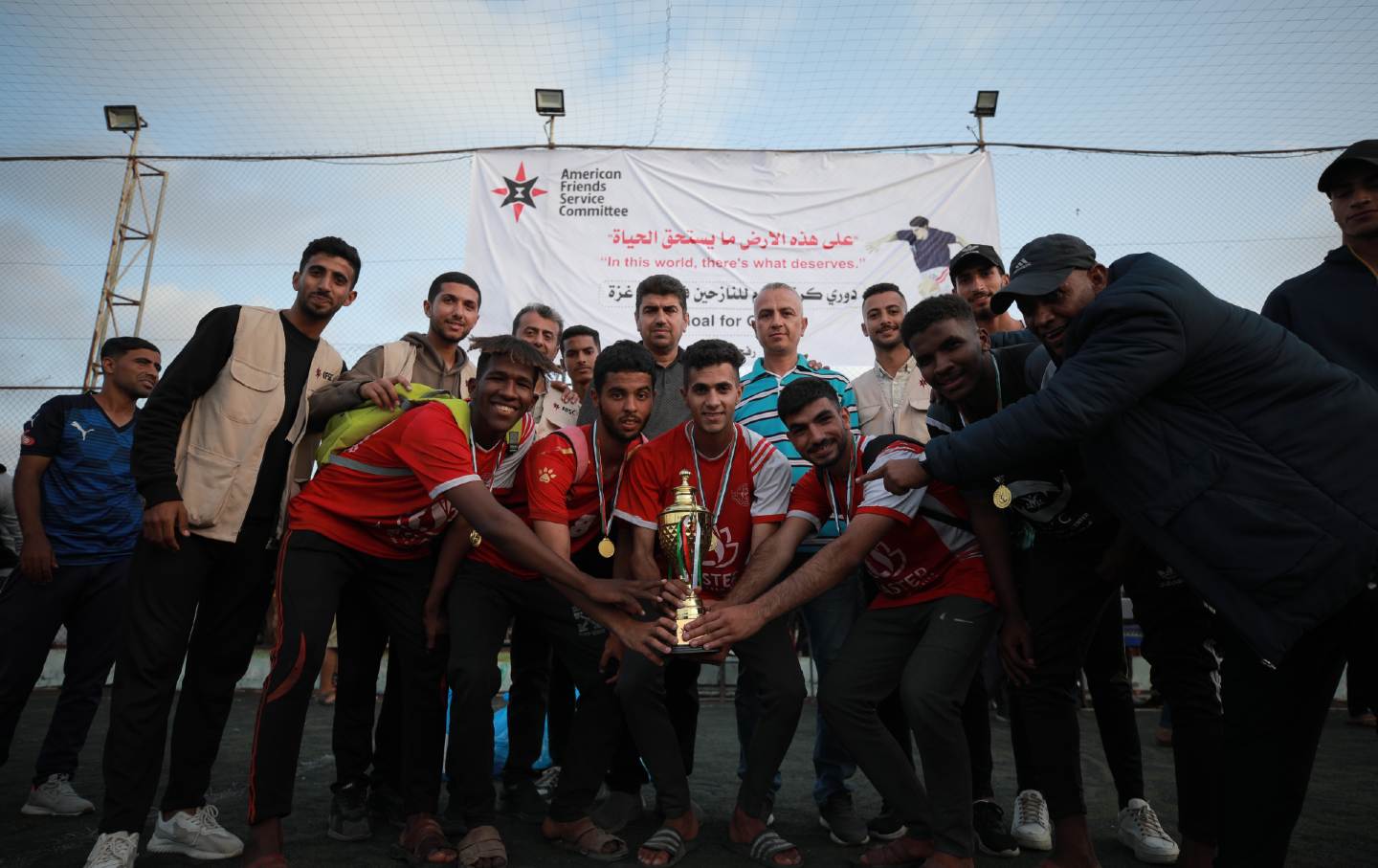
The soccer world of Palestine has also seen the killing of prominent players and coaches beloved throughout the region. Imagine what it does to a child to see their heroes slaughtered. As these matches take place, the death toll continues to mount, the hunger continues to rise, and the US-made weapons continue to be sent to Israel.
“In the US, teens might worry their soccer match will be called off because of rain. In Rafah, it is not weather but Israeli missiles that threaten the game, the players, and the 1.4 million Palestinians taking shelter there,” said Noor Nabulsi of AFSC. “We are calling on President Biden and every single member of Congress to support an immediate and permanent cease-fire, full humanitarian access, and an end of all military support for Israel. The young people of Palestine deserve a future where they can grow and play in peace.”
The playing of a soccer tournament in Rafah is an act of resistance—and even of survival. Israel’s destruction of sport is about killing the idea of play—of preventing people from having even the aspiration of feeling the wind against your face while chasing a ball. By playing soccer in the face of state violence, Palestinians are saying that they remain unshackled, that they still have dreams of being free.

